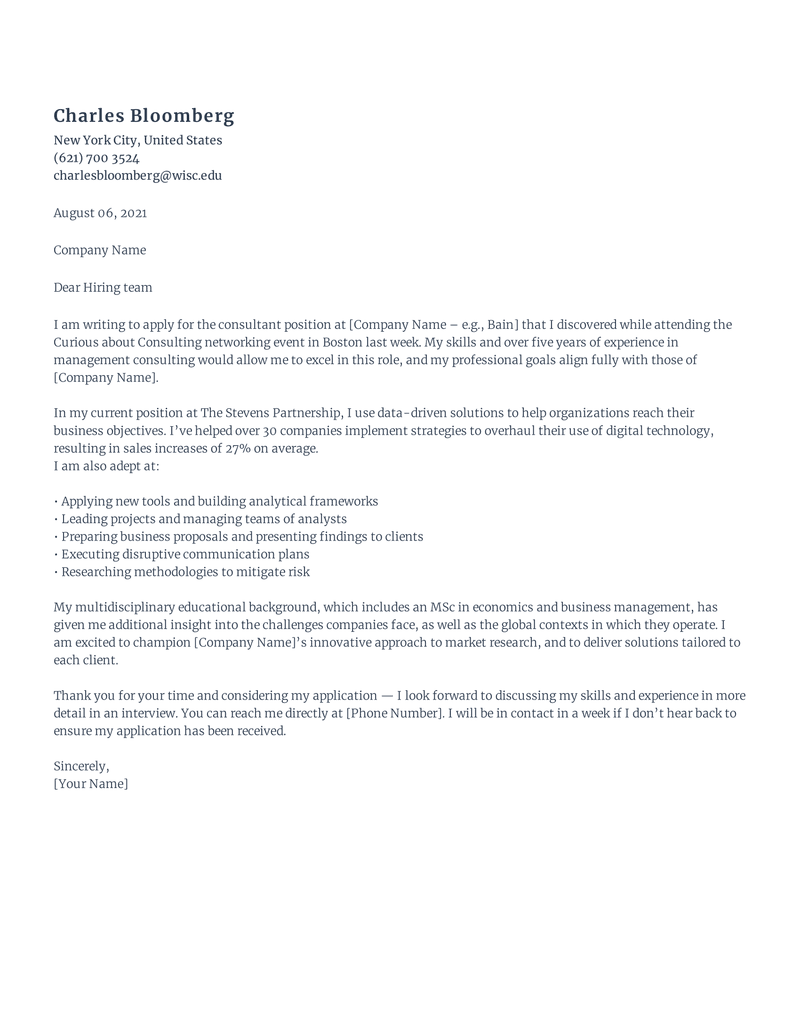Job interviews are your golden ticket to landing that dream position, but small mistakes can cost you big opportunities. Even the most qualified candidates sometimes sabotage their chances without realizing it. These common blunders might seem minor, but they send powerful signals to potential employers about your professionalism and fit for the role. Understanding these missteps is the first step to avoiding them entirely.
1. Arriving Too Early or Too Late

Timing your arrival for an interview requires precision that many candidates miss. Walking in 30 minutes early can make you seem overeager and put unexpected pressure on the interviewer to adjust their schedule. Meanwhile, arriving even 5 minutes late broadcasts unreliability from the start.
The sweet spot? Aim to check in exactly 10-15 minutes before your scheduled time. This shows respect for everyone’s time while giving you a moment to collect your thoughts and observe the workplace environment.
If unexpected delays happen, call ahead immediately. Employers understand traffic jams and transit issues occur, but they appreciate the courtesy of notification. Remember: your punctuality sets the tone for how you’ll handle workplace commitments.
2. Dressing Inappropriately

Your outfit speaks volumes before you say a single word. Many candidates misjudge company culture, either showing up in jeans for a formal environment or wearing a three-piece suit to a startup where everyone sports hoodies. This immediate visual disconnect signals you might not fit in.
Research is your fashion ally. Check the company’s social media, website team photos, or simply call the receptionist and ask about the dress code. When unsure, it’s better to dress slightly more formally than the everyday office attire.
Focus on details too – scuffed shoes, wrinkled shirts, or overwhelming perfume can distract interviewers from your qualifications. Clean, pressed, and conservative choices allow your skills—not your style choices—to be the center of attention.
3. Failing to Research the Company

Walking into an interview without company knowledge is like taking an exam without studying. Recruiters immediately notice when candidates can’t discuss the organization’s mission, recent projects, or industry position. This silence reveals a lack of genuine interest that no amount of qualification can overcome.
Effective research goes beyond skimming the homepage. Explore recent press releases, understand their product lineup, and identify key competitors. Follow their social media accounts to catch current initiatives and company culture clues.
Prepare specific examples of how your skills align with their needs based on this research. When you can thoughtfully discuss why their latest product launch excited you or how their community involvement resonates with your values, you demonstrate investment in their specific opportunity—not just any job.
4. Not Practicing Common Interview Questions

Stumbling through predictable questions creates an impression of poor preparation. When an interviewer asks you to describe yourself or explain your greatest weakness, your hesitation suggests communication difficulties rather than thoughtful consideration. These standard questions are opportunities to shine, not surprise obstacles.
Practice doesn’t mean memorizing robotic responses. Instead, develop flexible talking points about your experience and accomplishments. Record yourself answering questions to catch filler words or rambling tendencies.
Ask a friend to conduct mock interviews and provide honest feedback about your clarity and confidence. Focus especially on behavioral questions that begin with “Tell me about a time when…” as these require specific examples from your experience. Your preparation demonstrates respect for the interviewer’s time and your serious interest in the position.
5. Overusing Filler Words

Those tiny verbal crutches—um, like, you know, actually—can undermine your credibility faster than you realize. While everyone uses filler words occasionally, excessive use creates the impression of disorganized thinking or nervousness rather than the confidence employers seek in potential team members.
Recording yourself during practice interviews reveals your personal filler word patterns. Many candidates are shocked to discover how frequently these verbal habits appear. Replace these pauses with brief moments of silence instead—a thoughtful pause demonstrates careful consideration.
Joining public speaking groups like Toastmasters provides structured practice in eliminating these habits. Remember that speaking more slowly often reduces filler word dependency naturally. Quality communication matters more than rapid responses, especially when discussing your qualifications and experience in a high-stakes interview setting.
6. Talking Too Much or Too Little

Finding the perfect verbal balance challenges many candidates. Overtalkative interviewees often ramble nervously, burying key qualifications under mountains of irrelevant details. Meanwhile, those giving one-word answers appear disinterested or lacking depth, regardless of their actual enthusiasm.
The ideal response length typically spans 30 seconds to 2 minutes, depending on question complexity. Watch for subtle interviewer cues—nodding suggests continued interest, while glancing at notes may indicate it’s time to wrap up your point.
Structure answers using the STAR method (Situation, Task, Action, Result) for behavioral questions to maintain focus. For simpler questions, aim for direct responses with one supporting example. Practice active listening too—sometimes the best response is thoughtfully building upon the conversation rather than launching into a prepared speech about yourself.
7. Badmouthing Former Employers

Venting about previous bosses feels momentarily satisfying but permanently damages your professional image. Even subtle criticism raises immediate red flags for interviewers, who wonder if you’ll speak similarly about them someday. Negativity suggests unresolved conflicts and poor relationship management skills.
Transform challenging experiences into growth stories instead. Rather than saying “My manager micromanaged everything,” try “I developed stronger independent work skills while seeking opportunities for more responsibility.” This reframing demonstrates emotional intelligence and problem-solving abilities.
When directly asked about difficulties, acknowledge challenges briefly before pivoting to positive outcomes or lessons learned. Remember that maintaining professional boundaries includes protecting the reputation of previous workplaces, regardless of your personal feelings. This discretion signals maturity and trustworthiness—qualities every employer values more than hearing workplace gossip.
8. Lack of Enthusiasm

Energy matters enormously in interviews, yet many candidates underestimate its impact. Even highly qualified applicants get rejected when they present themselves with flat voices, minimal facial expressions, or disengaged body language. Employers seek team members who bring positive energy to the workplace, not just technical skills.
Genuine enthusiasm doesn’t mean manufactured cheerfulness. Instead, it means conveying authentic interest through engaged responses, thoughtful questions, and appropriate animation in your communication style. Make deliberate eye contact, lean slightly forward, and vary your vocal tone to show investment in the conversation.
Before interviews, identify specific aspects of the role or company that genuinely excite you. Referencing these points naturally throughout your conversation helps maintain authentic enthusiasm. Remember that fatigue from multiple interviews isn’t visible on your resume—only in your presentation—so bring your full energy to each opportunity.
9. Not Asking Questions

The dreaded silence when an interviewer asks, “Do you have any questions for me?” immediately signals disinterest or lack of critical thinking. Every interview is a two-way exchange, not just an interrogation of your qualifications. Thoughtful questions demonstrate genuine curiosity about the role and company culture.
Prepare at least five substantive questions before every interview, as some might be answered during your conversation. Focus on the team dynamics, success metrics for the position, or challenges the department currently faces. Avoid basic questions easily answered by the company website.
Questions also provide strategic opportunities to highlight your strengths indirectly. For example, asking “How does the team collaborate on cross-functional projects?” subtly emphasizes your teamwork skills while gathering valuable information. Remember that your questions often leave the final impression—make them count by showing you’re already mentally engaging with the role’s responsibilities.
10. Interrupting the Interviewer

Cutting off your interviewer mid-sentence broadcasts impatience and poor listening skills, even when your intentions are good. Many candidates interrupt because they’re eager to share relevant experience or worried they’ll forget important points. Unfortunately, this enthusiasm backfires by suggesting you value your speaking time over understanding the complete question.
Active listening requires discipline. Wait for a clear pause before responding, and jot quick notes if you’re concerned about forgetting key points. This small notepad of thoughts allows you to respond completely without the anxiety of losing your train of thought.
If you accidentally interrupt (it happens!), immediately apologize briefly and ask the interviewer to continue. Most importantly, be aware of conversational dynamics throughout the interview. The rhythm of comfortable professional dialogue includes natural pauses and balanced speaking time—mastering this rhythm shows advanced communication skills that translate to workplace success.
11. Being Overly Modest or Too Arrogant

Striking the perfect confidence balance challenges many candidates. Excessive modesty (“I just got lucky with that project”) diminishes your actual contributions and expertise. Conversely, arrogance (“I was clearly the only one who knew what I was doing”) suggests poor teamwork and an inability to recognize others’ contributions.
Confident humility works best in interviews. Phrase accomplishments factually: “I led a team that increased sales by 30% through a campaign I designed” acknowledges both your leadership and the team’s execution. When discussing challenges, own your role while recognizing collaborative elements.
Pay attention to pronouns—constantly saying “I” may signal self-centeredness, while exclusively using “we” might obscure your personal contributions. Balancing “I” and “we” appropriately demonstrates both individual capability and collaborative spirit. Remember that interviewers assess not just what you’ve accomplished, but how you talk about those accomplishments.
12. Overemphasizing Salary or Benefits

Bringing up compensation prematurely shifts the conversation from value to cost before you’ve established your worth. Many candidates mention salary requirements in the first interview or even during introductions, immediately framing themselves as expense-focused rather than solution-oriented.
Timing matters tremendously. Wait for the interviewer to introduce compensation topics, which typically happens after they’ve determined your fit for the role. Use early interview stages to demonstrate your value, understanding of company challenges, and enthusiasm for the position itself.
When the topic naturally arises, approach it professionally by researching industry standards beforehand. Frame your expectations as flexible within a reasonable range based on the complete package. Remember that premature or excessive focus on benefits signals that you’re more interested in what you’ll receive than what you’ll contribute—a major red flag for employers seeking committed team members.
13. Using a Generic Resume or Cover Letter

Mass-produced application materials scream “I’m applying everywhere!” rather than “I’m perfect for this specific role.” Generic documents that fail to address the particular position requirements suggest either laziness or a scattergun approach to job hunting. Interviewers immediately notice when your materials could apply to any company in any industry.
Customization doesn’t require complete rewrites for each application. Instead, maintain a master resume with all your experiences, then strategically highlight and tailor relevant sections for each position. Mirror key terms from the job description while ensuring your adaptation remains truthful about your experience.
Pay special attention to your cover letter’s opening paragraph, which should specifically mention the company and position. Reference how your experience aligns with their current initiatives or challenges. This targeted approach demonstrates research and genuine interest while signaling that you’re selective about opportunities—not desperately applying everywhere.
14. Ignoring Nonverbal Cues

Your body speaks volumes before your mouth opens. Weak handshakes, minimal eye contact, constant fidgeting, and poor posture communicate insecurity or disinterest regardless of your verbal brilliance. Studies suggest nonverbal elements account for over 50% of communication impact, yet many candidates focus exclusively on rehearsing answers.
Awareness is the first step toward improvement. Record practice interviews to observe your unconscious habits. Do you slouch? Play with your hair? Avoid eye contact when thinking? These small behaviors create lasting impressions about your confidence and engagement level.
Practice confident body language daily, not just before interviews. Stand tall, offer a firm handshake, maintain natural eye contact, and position yourself attentively. Cultural differences affect appropriate nonverbal communication, so research industry and company norms. Remember that aligned verbal and nonverbal messages create trust, while misalignment causes confusion about your true intentions and interest level.
15. Forgetting to Follow Up Afterward

Many promising candidates vanish after interviews, missing a crucial opportunity to reinforce their interest. The post-interview void suggests either disinterest or poor follow-through—qualities no employer wants. Yet a thoughtful follow-up can distinguish you from equally qualified candidates who remain silent.
Send a personalized thank-you email within 24 hours to everyone who interviewed you. Reference specific conversation points to show active listening and continued enthusiasm. This small gesture demonstrates professionalism and attention to relationship-building that translates to workplace success.
For longer hiring processes, appropriate check-ins show persistence without pestering. A brief email after the expected decision timeframe has passed keeps you visible while respecting the employer’s process. Remember that your communication after the interview often receives as much scrutiny as your in-person performance—both reveal how you’ll likely interact with clients and colleagues.

Comments
Loading…